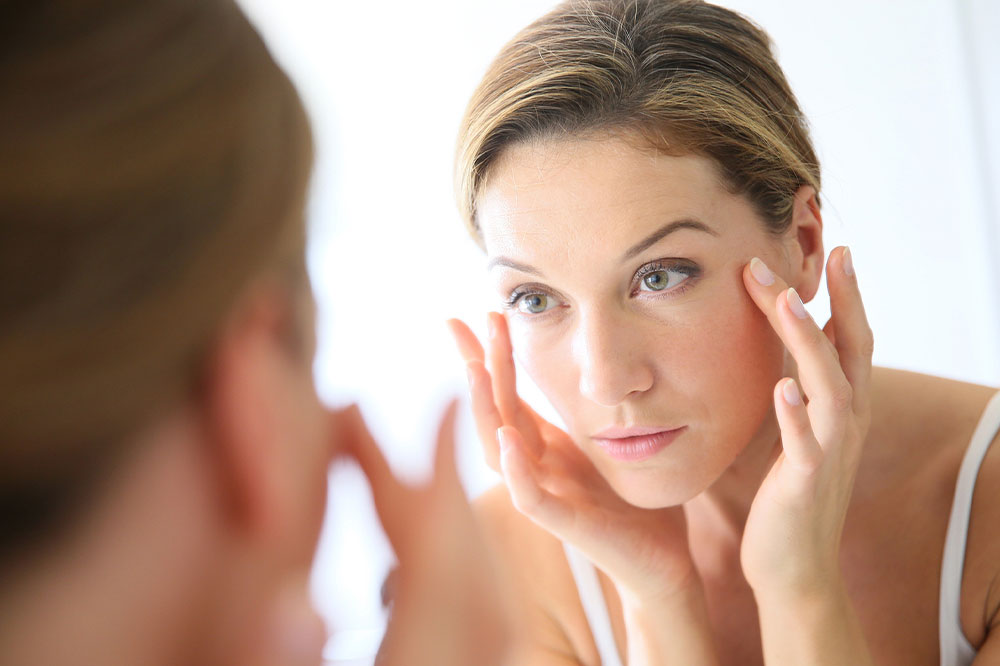
5 skin care mistakes to avoid premature aging
Flawless and ageless-looking skin is a goal that most individuals aim for. And these people pick up several skin care hacks and routines from magazines, online videos, and by word-of-mouth to maintain the texture of their skin. However, most people are unaware that certain routines may negatively affect the skin, contrary to claims by several websites and companies. So, here are five skincare mistakes that may lead to premature aging if left unchecked.
Going to bed with makeup
Many individuals return from work and sleep with makeup on. If a person is out, they expose themselves to hoards of pollution. The free radicals in the air quickly latch on and embed themselves in the exposed surfaces of the skin. These radicals can affect the body’s natural ability to produce collagen and elastin. This makeup also clogs pores, making it impossible for the skin to recover. Furthermore, not washing off such pollutants may lead to the development of fine lines and premature wrinkles. So one must ensure they wash off all makeup before bed. Also, it is equally important to cleanse when one wakes up in the morning to get rid of the dirt that develops on the skin overnight.
Neglecting sunscreen
Several people tread outdoors without sunscreen, especially when the climate is cooler. But going out without using the product can expose the skin to the sun’s harmful effects. Excessive exposure to the sun may result in rough skin, hyperpigmentation, and premature wrinkles. So one must apply it before outdoor travel to protect them from the damaging effects of the sun. When purchasing a good quality sun block, one must opt for ones containing minerals or zinc. These offer the best results if the individual applies the lotion more than once. Furthermore, speaking to a skincare specialist before using sunscreen is advisable.
Not sleeping enough
There might be multiple reasons for not getting sufficient sleep at night, either due to overusing smartphones or due to stress. However, lack of sleep can affect energy levels and disrupt an individual’s overall health. Cutting down on hours of sleep can simultaneously increase the stress hormones in the body. This habit results in a dull complexion, dehydrated skin, and breakouts. The phenomenon also results in fine lines and wrinkles. So one must get a minimum of eight hours of sound sleep to maintain overall skin health.
Caring inappropriately for tattoos
Getting a tattoo is an individual choice. But many people get them yet fail to follow an ideal skincare routine afterward. And not caring appropriately can have irreversible skin consequences. Therefore, one must follow a proper regime to avoid any after-effects. It is also essential to follow a night care routine for a tattoo. One can do this by avoiding sleeping on the inked region, keeping an adhesive wrap on overnight, and rewrapping the area post shower. Before getting a tattoo one must ask the artist about their product’s quality, their past work, and aftercare methods. Doing so may help one understand how safe the procedure is.
Eating unhealthy foods
The foods we eat have an impact on our overall health. Eating meals with excessive processed ingredients, preservatives, and unhealthy fats gradually take a toll on the skin. Instead, one should consume healthy foods such as vegetables and fruits, which contain several elements that improve skin health. For instance, Vitamin A-rich foods can produce healthier cells and repair the existing ones. Also, Vitamin C works as an antioxidant that can protect tissues from free radicals that damage the skin. Eating meals rich in omega-3 fatty acids, such as mackerel and salmon, can also do wonders for maintaining optimum skin.







